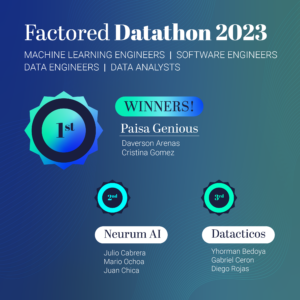Finding the right talent has become the primary bottleneck for AI adoption, especially when it comes to Operationalization, known nowadays as MLOPs. So what are businesses to do?
In this post, we’ll take a look at what MLOps is, the need for MLOps talent, why it can be difficult to find it, and the best way to go about building your MLOps team.
The Need for MLOps Talent
As we’ve discussed previously on this blog, MLOps stands for Machine Learning Operations and is all about designing systems that will foster, sustain, and improve Machine Learning-powered value creation processes.
In other words, MLOps aims to streamline the process of building and deploying machine learning models by bringing together different teams, tools, and processes involved in the model’s lifecycle. Team members can include software engineers, data scientists, machine learning engineers, software developers, IT operations, business analysts, and more. A report by McKinsey shows what roles organizations are most often hiring for:
There is a huge need for this type of talent. Just take a look at the graph below to get an idea of how the number of AI job postings has skyrocketed in the past eight years, especially in the US.
The challenge is, MLOps requires a set of technical skills that can be hard to find. Those skills range from having a great business understanding, passing through having a very solid knowledge on Machine Learning Foundations until holding a good amount of experience deploying software in production environments. This is particularly hard to find in one single person, and even though different providers are trying to offer software to automate some of the MLOPs capabilities, such as Auto ML, there are still major bottlenecks for AI adoption. Let’s take a closer look at AutoML now.
AutoML
AutoML stands for Automated Machine Learning and is the process of automating the machine learning workflow. It aims to make machine learning more accessible by automating some of the repetitive and time-consuming tasks involved in building a machine learning model, and this has changed the mix of talent companies need for their ML projects:
As you can see, while fewer people may be needed to monitor and update machine learning models after their initial deployment, MLOps talent is still needed throughout the model’s lifecycle. In fact, according to Snaplogic, even with the arrival of AutoML on the scene, most companies continue to look for the following skills in their AI teams:
- 35%: Coding, programming, and software development
- 33%: Data visualization and analytics
- 34%: An understanding of governance, security, and ethics
- 27%: Advanced degree in a field closely related to AI/ML
The problem is—at around 60%—the majority of companies say finding this talent is difficult. So what are businesses supposed to do in order to build out their MLOps capabilities?
Finding the Talent You Need
When setting out to look for MLOps talent, try to avoid all the noise around new AI or MLOPs tools so that you don’t convert them into bottlenecks for your hiring efforts, unless there’s a strict necessity of a particular technology within your organization. Instead, look for people who are good problem solvers, have a good understanding of fundamental concepts, know how to ask the right questions, and understand how to use those answers to inform their system design decisions. After all, people can catch up with the most recent tools or tech stacks relatively quickly, but having a good fundamental understanding of systems is invaluable.
And, no—this talent does not have to be expensive. Today’s digital-first world means there are near-shoring opportunities that can greatly reduce the cost of hiring such talent. In fact, at Factored, we can help build and scale MLOps talent faster and more cost-effectively. That’s because distributed teams of remote engineers can significantly reduce costs and delays in building a highly-qualified engineering team.
Want to learn more? Reach out to chat with us about how we can help you build your MLOps team and get your AI initiatives off the ground.









